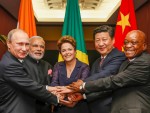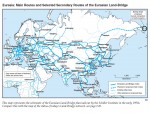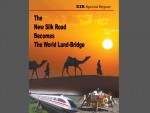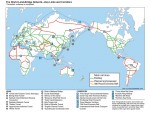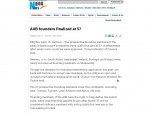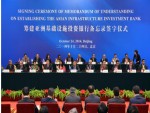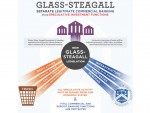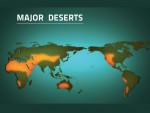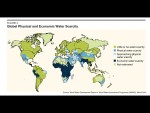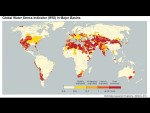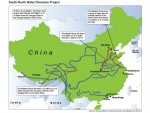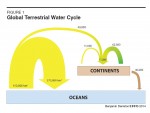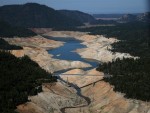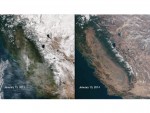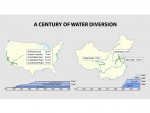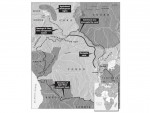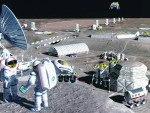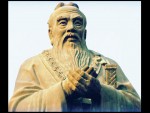Titelbillede: Dr. Liu Chunrong og Helga Zepp-LaRouche
Schiller Instituttets seminar fandt sted på Copenhagen Business Confucius Institute under Copenhagen Business School.
The Schiller Institute seminar was held at the Copenhagen Business Confucius Institute, Copenhagen Business School.

Hr. Li Xiaoguang, kinesisk meddirektør for Copenhagen Business Confucius Institute, holdt en velkomsttale.
Mr. Li Xiaoguang, the Chinese co-director of the Copenhagen Business Confucius Institute, welcomed the participants to the Institute.

H.E. Ambassador Liu Biwei (right)
HE hr. Liu Biwei, Den kinesiske Folkerepubliks ambassadør til Kongeriget Danmark holdt åbningstalen.
His Excellency Mr. Liu Biwei, Ambassador of the People’s Republic of China to the Kingdom of Denmark delivered opening greetings to the seminar.
Helga Zepp-LaRouche, stifter og formand for det Internationale Schiller Institut, holdt en tale om ‘Den Nye Silkevej bliver til Verdenslandbroen, med introduktion v/Tom Gillesberg, formand for Schiller Instituttet i Danmark.
Helga Zepp-LaRouche, founder and president of the international Schiller Institute spoke about The New Silk Road becomes The World Land-bridge. Introduced by Tom Gillesberg, chairman of The Schiller Institute in Denmark:
Video af Zepp-LaRouches tale, med dia-billeder; en dansk oversættelse følger lige under videoen.
(Video of Zepp-LaRouches speach, with the slides included. An english transcript can be found further down the page)
Download (PDF, Unknown)
Audio:
Hr. Liu Chunrong, PhD., associeret professor, School of International Public Affairs, Fundan Universitetet; eksekutiv vicedirektør for Fundan-European Centre for China Studies, Københavns Universitet, præsenterede Kinas “En Bælte, En Vej” politik.
Dr. Liu Chunrong, PhD, Associate Professor, School of International Relations and Public Affairs, Fudan University, and Executive Vice Director Fudan-European Centre for China Studies, NIAS, University of Copenhagen, presented China’s One Belt, One Road policy.
Video:
Audio:
Discussion period:
Video:
Audio:
(See English report below.)
Stor succes for Københavner-seminar om Kinas politik for »Et Bælte, En Vej«
København, 27. april 2015 – Omkring 80 mennesker deltog i dag i et seminar, som blev holdt på Copenhagen Business Confucius Institute under Copenhagen Business School.
Følgende personer var talere på seminaret:
Velkomsttale: Hr. Li Xiaoguang, kinesisk meddirektør for Copenhagen Business Confucius Institute.
HE hr. Liu Biwei, Den kinesiske Folkerepubliks ambassadør til Kongeriget Danmark – åbningstale.
Fr. Helga Zepp-LaRouche, grundlægger af og international præsident for Schiller Instituttet og en betydningsfuld medforfatter af »Den Nye Silkevej bliver til Verdenslandbroen«; mangeårig leder i LaRouche-bevægelsen og gift med den amerikanske statsmand, økonom og filosof Lyndon LaRouche; forkvinde for det tyske politiske parti Bürgerrechtsbewegung Solidarität (Borgerrettighedsbevægelsen Solidaritet), BüSo. Introduktion v/Tom Gillesberg, formand for Schiller Instituttet i Danmark.
Hr. Liu Chunrong, PhD., associeret professor, School of International Public Affairs, Fundan Universitetet; eksekutiv vicedirektør for Fundan-European Centre for China Studies, Københavns Universitet.
De ca. 80 deltagere inkluderede fem ambassadører samt diplomater fra seks andre ambassader, mange medlemmer og kontakter af Schiller Instituttet, og andre interesserede som har specielle tilknutning til Kina.
Denne konference er den tredje i rækken af ’Manhattan-projekt’-konferencer i København siden januar, som Schiller Instituttet har arrangeret. En mere udførlig rapport vil følge, inkl. links til video- og audiooptagelser.
English:
Very Successful Copenhagen Seminar on “China’s ‘One Belt,
One Road’ Policy”
The Schiller Institute in Denmark held a very successful seminar about China’s “One Belt, One Road” policy, at the Copenhagen Business Confucius Institute, attended by approximately 80 people. Video and audio recordings can be found at: http://schillerinstitut.dk/si/?p=6387
Li Xiaoguang, the Chinese co-director of the Copenhagen Business Confucius Institute, welcomed the speakers and attendees.
The seminar participants had the honor to have opening remarks by His Excellency Mr. Liu Biwei, Ambassador of the People’s Republic of China to the Kingdom of Denmark.
The next speaker was Helga Zepp-LaRouche, founder and president of The Schiller Institute, and a major author of the EIR Report “The New Silk Road Becomes the World Land-Bridge.” She was introduced by Tom Gillesberg, chairman of The Schiller Institute in Denmark. Mrs. Zepp-LaRouche presented the world land-bridge policy and the new BRICS paradigm, as the alternative to the danger of economic and financial collapse, and nuclear war. One area of special emphasis was the growing crisis of fresh water scarcity, counterposing the lack of action in the U.S., with the great infrastructure project approach in China.
The Chinese point of view of the “One Belt, One Road” policy was presented by Dr. Liu Chunrong, PhD, Associate Professor, School of International Relations and Public Affairs, Fudan University, and Executive Vice Director Fudan-European Centre for China Studies, NIAS, University of Copenhagen.
Among the audience were: five ambassadors, plus diplomats from another six other embassies; people who have a special connection to China representing a Danish think tank, academia and businesses; plus many Schiller Institute members and contacts.
This seminar was the third in a series of Manhattan project-style Schiller Institute conferences held in Copenhagen since January.
English transcript of Helga Zepp-LaRouche’s speech, and Tom Gillesberg’s introduction:
HELGA ZEPP-LAROUCHE ADDRESSES “CHINA’S ‘ONE BELT, ONE ROAD’
POLICY’ SEMINAR IN COPENHAGEN, April 27, 2015
Here is the transcript of Helga Zepp-LaRouche’s address to the
Schiller Institute seminar in Copenhagen, which was held
Copenhagen Business Confucius Institute, Copenhagen Business
School. Click her for the audio and video from Helga Zepp-LaRouche’s speech and the other speeches from the seminar.
TOM GILLESBERG: I have the great honor of introducing Helga
Zepp-LaRouche, who has come here from a rather busy schedule both
in Germany and the United States, but also the whole world she’s
intervening to. Just as a short introduction, Mrs. Zepp-LaRouche
has been since 1977 the wife and very close collaborator of
Lyndon LaRouche in the United States, the economist, philosopher,
statesman who is giving leadership in the U.S., for the U.S. to
return to the intentions of its founders, to be a promoter of
sovereign nations that can collaborate on an equal footing to
secure the benefits for all nations and peoples.
And Helga has a very, I think, close connection to China.
As a young journalist she traveled to China in 1971, in the
height of the Cultural Revolution as one of the first Western
journalists and actually saw on the spot what was going on. She
then became politically active with the LaRouche movement and
embarked on a life-long battle for a new just world economic
order, for the possibilities of development for all nations and
peoples.
She then founded, among many other things, the Schiller
Institute, in 1984. She is presently the chairwoman of the
German political party, the BüSo — the Bürgerrechtsbewegung
Solidarität, or Civil Rights Soliarity Movement. She was vry
active after the Fall of the Berlin Wall and one of the authors
of the Schiller Institute program for the development of the
world after the Iron Curtain had fallen of the program the
Paris-Berlin-Vienna Productive Triangle, a Locomotive for the
World Economy. And when that did not materialize, she was very
active in extending that program to the program for the Eurasian
Land-Bridge, going from China and Asia to Europe and having a
development of the whole region. And as part of that, she then
became a visitor many times to China to speak on the need for a
New Silk Road and actually earned her nickname in China as the
“Silk Road Lady,” for her efforts to have China embark on this
policy.
And since then, she has been also the driving force in
holding many scores of conferences in Europe and the United
States on the need for creating a paradigm shift, to get the
Western world out of its long-term economic, strategic, and
cultural crisis. And, over the last couple of years, she has
been one of the architects of this report, “The New Silk Road
Becomes the World Land-Bridge.” She has also been leading the
campaign to stop the present geopolitical games that threaten to
detonate thermonuclear war and instead get the United States and
Europe to accept the offer of the BRICS countries to join forces
in an inclusive world order, where all nations of the world, on
an equal footing, collaborate to secure the peace and development
of all nations.
So I think it’s very appropriate that you are here to
directly lay what’s going on, so please, welcome. [applause]
HELGA ZEPP-LAROUCHE: Thank you, Tom, for these kind words of
introduction.
Well I have a certain dilemma, because I want to present to
you the potential, which lies in this program, and given the fact
that the Western media have reported very little about it, I have
a dilemma, that I need to tell you, that this is {the} most
important political initiative on the planet right now. The
dilemma comes from the fact that, by introducing this idea, have
to tell you immediately why this is the case, and that is the
reality, that the world is much more close to a new global war,
than most people have an inkling of. And this New Silk Road
initiative, which comes from China, but which in the meantime has
been joined by many countries, is the only available
war-avoidance policy.
Now there was just on the April 18- 19 in Moscow the Fourth
Moscow International Security Conference, and the main subject of
this conference was the danger of nuclear war. And this is a
reaction to the fact that NATO has been expanding eastward, up to
the borders of Russia. You have a whole bunch of strategic
doctrines which Russia regards as a threat to their security
interests, and naturally you have the horrendous situation in
Ukraine, which contrary to what the Western media have been
reporting on — or not reporting actually — is it’s really
something which the West must make up. I just participated in the
last two days, or Friday and Saturday in a conference in
Baden-Baden in Germany, the German-Russian Cultural Days. It’s an
annual conference, and there was a large gathering of German
industrialists and Russian speakers and Russian people. And we
had the fortune to have a videoconference connected to this
conference, which brought in a live program from the former Prime
Minister of Ukraine, Mr. [Mykola] Azarov. And he gave an
absolutely hair-raising report about the conditions in Ukraine,
the fact that the country is being torn apart. Political leaders
are either forced to go into exile or are threatened to be
assassinated; journalists are being killed openly in the street;
trenches are being built; and, as you know, American soldiers are
now training the National Guard, which has a lot of Nazi
components in it. And for the Russians this is extremely severe,
because we are shortly before the 70th anniversary of the end of
Nazism and the end of the Second World War, and the mood of the
people were really horrified to see this endorsement of Nazis 70
years after the Second World War.
Now, I don’t want to go into this in depth, we can do that
in the discussion if people have questions about it, but I think
this crisis, in Ukraine in particular, I could also point to the
Middle East, which is in a similar horrible condition, makes
very, very clear, that if we as humanity cannot move away from
geopolitics — geopolitics was the reason for two world wars in
the 20th century, and right now the continuation of geopolitics
is threatening a new global war. I just want to mention an
article in {New York Times} from 19th April, where two generals,
Gen. James Cartwright, who is former head of the U.S. Strategic
Command, and Gen. Vladimir Dvorkin, who is the chief of
intelligence of the Russian Strategic Nuclear Forces, they penned
together an article, In which they said that the world has never
been so close to the danger of nuclear war globally, and
therefore extinction, as right now. And the reason is obviously
that even the normal code of behavior among nations, which
existed in the Cold War, that you had a red telephone between
Kennedy and Khrushchev, this no longer exists; and you have the
two nuclear forces, from NATO and the West and Russia, all the
time on launch on warning. And launch on warning means there are
only a few minutes time, if one side perceives a launch, either
by intention or by accident, they have a few minutes, actually
it’s estimated three minutes’ time, to respond or be eliminated.
So that shows you how extremely close we are to the danger
of a global extinction of civilization. Because if this would
happen, we would not exist as humanity. And I’m saying it with
that gravity, to say that this calls all the more urgently, for a
different approach. And the different approach must be to move
away from geopolitics and move in the direction of the common
aims of mankind.
And it just happens to be, that the policies which are
proposed by President Xi Jinping, which he calls a “win-win”
policy, is exactly that. It’s the idea, that with the New Silk
Road, you have a policy where every country which participates in
it, will have a benefit for it. The New Silk Road, Maritime Silk
Road policy by China is {not} a new imperial policy replacing the
Anglo-American imperial policy, but it is a completely new model
of the nations among nations, where the enormous example of the
Chinese economic miracle, which China was able to develop in the
last 30 years — you know, where China in {30 years}, developed
as much as most industrial nations needed 100 or 200 years to
develop — and China is now offering to export that model and
have other countries benefit in a similar way from that kind of
economic miracle, which China did.
Can you move to the first slide?
So the world has changed since July last year, the summit of
the BRICS countries in Fortaleza in Brazil. And this is a
picture which was made at this occasion, showing the leaders of
Russia, India, Brazil, China and South Africa. And they basically
concluded a new strategic alliance — economic alliance, which
Prime Minister Modi characterized in the following way: He said,
“This is the first alliance of nations, which are not defined by
their current capacity, but by their future potential of
development.” And at another occasion, Modi said that the biggest
potential of India is, that 60% of its people are below 30 years
of age, and therefore, if they are well-educated and developed,
they can come to the help of other nations, which has demographic
problems, like Germany, for example.
What these countries did, is they concluded an enormous
amount of economic treaties, of economic cooperation, including
peaceful development of inherently safe nuclear energy, the
development of fusion energy, joint space projects, space travel,
and numerous other high-tech cooperation areas.
Then, the next day, they met with the leaders of South
America, the organizations of CELAC [Community of Latin American
and Caribbean States] and Unasur [Union of South American
Nations]. Then a little bit later they also had meetings with
countries of ASEAN [Association of Southeast Asian Nations] and
actually you have now a completely parallel system of economics,
which is really going to be the infrastructure development of the
world.
Now this here is an official picture of the New Silk Road
and the Maritime Silk Road, which shows you the old Silk Road
from Xi’an, actually it goes even farther to the west,
Lianyungang, where the end of that Silk Road is on the China Sea,
all the way through Urumqi, then Central Asia into Europe; and
then Maritime Silk Road is actually connecting even Africa and
much of the Pacific also into Europe. And this is modelled on the
famous Maritime Silk Road of the 15th century, which connected
the nations of the world already at that time.
Now, I want to very quickly say that this made us very
happy, when Xi Jinping announced the New Silk Road in Kazakhstan
in 2013, we jumped that high — you know, in the Schiller
Institute — because we had promoted this idea. This was our
proposal when the Berlin Wall came down, in ’89, and the wall no
longer was there. So we said let’s connect Paris with Berlin and
Vienna, which is a triangular area of the size of Japan, and has
the highest concentration of industrial capacity in the world;
and let’s make corridors to Warsaw, to Kiev, to the Balkans. And
it would have been a perfect way to intervene.
Unfortunately at that time, despite the fact there was a
very good resonance, you had Bush Sr., you had Margaret
Thatcher, and they had completely different ideas: They wanted to
reduce Russia from a superpower to at Third World, raw
materials-exporting country, and therefore they introduced the
shock-therapy, instead, which dismantled the Russian industrial
potential between ’91-’94, to only 30% left.
But then, when in ’91, the Soviet Union collapsed, we
connected this triangle, Paris-Berlin-Vienna, and we said: OK,
now the Iron Curtain is gone, now we can have development
corridors connecting the population and industrial centers of
Europe with those of Asia, through corridors. And then we looked
at the best geographical conditions. I should say, we were
inspired very much by the railway program of Sun Yat-sen, the
founder of modern China, who had developed a whole network of
Chinese railways, and that went into this program. So, at that
time we said let’s look at the best geographical preconditions,
and we found, not so accidentally, that the old Trans-Siberian
Railroad and the old Silk Road, the ancient Silk Road, had the
best geographical conditions to build such infrastructure.
So at that point the shock therapy started to destroy
Russia’s economy, but we kept holding seminars — we had hundreds
of seminars, in Europe, in United States, and then, eventually,
in Warsaw, in Budapest, in Moscow. And in ’96 even in Beijing,
where the Chinese government had responded to our proposal to all
the governments, to hold a big conference promoting the regions
along the Silk Road. And I was there as a speaker, but then came
the Asia Crisis in ’97, and China, at that conference said, that
this will be the long-term strategy for China until 2010. But
then the Asia crisis brought chaos and then the Russian GKO
crisis [in ’98].
So in the mean time we kept working on this initial proposal
which grew. And the latest of this, is this report: It’s a
370-page study which is really the idea of connecting the world
through infrastructure corridors.
Now, here you see some of these projects, which are already
being built, by the BRICS, by some of the other countries — for
example China is now building a transcontinental railroad from
Brazil to Peru, this is letter A [on the map]. This has already
started — you know, Latin America does not have an
infrastructure network! It is still in the colonial condition,
where you have little railroads from the iron ore mountain to the
coast, but if you want to travel from Peru to Brazil, you have to
go via Miami. So this is the idea, to develop a continental
railroad system.
Then number 1 there is the canal built in Nicaragua, it will
be the second Panama Canal, which obviously is an extremely
important project, which will mean that Nicaragua has a very good
chance to become an industrial country, with improving living
standards of its population. Naturally the Greenies are going
crazy and they say there are two fishermen who have to be
resettled. But, first of all, these people will be compensated,
and secondly without infrastructure, there is {no} industrial
development; without infrastructure there is not even
agriculture, because without infrastructure you cannot transport
and process food.
So then, naturally you have the Bering Strait, this number
2. This has been recently announced by Vladimir Yakunin, who is
the head of Russian Railways. And he proposed (I don’t think I
have that slide), a fast train connection from London all the way
through the Bering Strait to New York. A couple of years ago, Mr.
LaRouche and I participated in a conference in Moscow where the
fathers of the Bering Strait Project were present. These were all
older men over 80, and they said: “Oh, in 20 years, we can go
with a maglev train from Acapulco through the Bering Strait to
Mumbai, and this will be much faster than you can go by ship
today,” and they had a very pioneering spirit.
So this is very important because this connection not only
would connect the transport lines of North America with those of
Eurasia, but it would be absolutely crucial to open up the Arctic
Region. In the Far East of Russia you have all the raw materials
which are in the periodic table of Mendeleyev, and they represent
for the next 100 years a very important raw-material potential
which will be important not only for Russia, but for Europe, for
the United States, for China, for Japan, for Korea. So this will
be the way to develop it, because these raw-material are in
permafrost conditions, and you have to build, you have to build
cities, which have a dome, because people have to live — you
cannot live in permanfrost conditions like that, you have to have
a special way of developing it.
Now, I could go into many other projects — the Seikan
tunnel between the Japanese islands does already exist, it
connects the two important islands in Japan. Then the Bohai
Tunnel will connect two Chinese cities and shorten the transport.
The brown line there, this is the actual Silk Road [Silk Road
Economic Belt], which is now being promoted by China; this larger
gray line is the [21st-Century] Maritime Silk Road; but as you
can see, it stretches all the way to Europe and into Africa.
Prime Minister Li Keqiang was several times last year in Africa,
and he proposed to connect all African capitals through a fast
train system. And I know from many Africans, leaders and leading
politicians, they are very happy about that, because Africa right
now urgently needs development. And I think, if you look at the
horrendous refugee crisis, the people drowning by the thousands
in the Mediterranean, it makes it {so} clear that to bring
development to Africa is the only way how you can overcome this
unbelievable tragedy. And if Europe would have a right mind, they
would join! You know, rather than sending the Triton boats to
chase the refugees back, which is a complete moral bankruptcy of
Europe.
Now this is very interesting, because the big question
always comes, “who should finance all of this?” As you know,
already at the Brazil Fortaleza summit, the BRICS countries
agreed, together with some of the other countries, to create new
financial institutions: the New Development Bank of the BRICS,
the AIIB [Asian Infrastructure Investment Bank] was already
founded in last October, but also a whole set of other banks.
And it came from the idea, that when the Asia crisis happened in
’97, in which speculators like George Soros speculated against
the currencies of countries like Korea, Philippines, Thailand, in
one week up to 60-80% downward, and these countries had no
defense; so they concluded, “OK, we have to protect ourselves,”
so they created the Contingency Reserve Arrangement [CRA], which
is a pool of currencies of a $100 billion, which will defend all
of the participating countries against speculative attacks.
Now, the AIIB, the New Development Bank, the New Silk Road
Fund, the Maritime Silk Road Fund, the bank of the Shanghai
Cooperation Organization [SCO Development Bank], and the SAARC
[South Asian Association for Regional Cooperation] Development
Fund, are all new banks which follow a completely different
principle than Wall Street and the City of London, or Frankfurt,
for that matter. They say, we do not participate in speculation,
but we will use these funds only for investment in the real
economy, into these projects. And this is urgently needed,
because as you know, despite all of the quantitative easing of
the Federal Reserve, and now [ECB President] Mr. Draghi, who are
printing money as if there would be no tomorrow, the money does
not arrive at the industries! Because the banks, the speculators
prefer to keep the casino going, and this is actually reaching a
point where at the IMF annual spring meeting which just took
place in Washington, the IMF itself put out a report saying that
we are facing a collapse {bigger} than 2008 with the collapse of
Lehman Brothers. And several economists from J.P. Morgan and
other banks warned that you could have a simultaneous stock and
bond crisis, causing a meltdown of the system; or, if the Federal
Reserve would increase the interest rate only by a tiny, tiny
amount it could blow up the whole derivatives bubble of $2
trillion. And if the Troika and the ECB are pushing Greece out
of the Eurozone, that could also trigger a collapse, because it
would not so much hurt Greece, but it would blow up the European
banks.
So therefore, the existence of these banks are de facto a
lifeboat in the face of the immediate danger of a collapse.
Now, as you probably have noticed, when the question came,
who would be a founding member of the Asian Infrastructure
Investment Bank, which was already constituted last October, but
the date until which countries could join as founding members was
end of March [2015]. And the United States put a lot of pressure
on the allies, not to join; they didn’t want Korea to join;
naturally, they didn’t want Europe to join, and they put maximum
pressure on Asian countries not to join. But then, it just so
happened, that the best ally of the United States, Great Britain,
was the first European country to join, and that caused a kind of
a dam break, and then Germany, France, Italy, Switzerland,
Austria, and all the Scandinavian countries joined. And the
actual founding members included 57 countries. And they
basically participate in different degrees in this new bank,
which obviously people realize that what China is offering with
the economic cooperation in these projects, is much, much more
attractive than to participate in more speculative bubbles which
eventually will pop. So, this was from the founding meeting in
October, already, but in the meantime, it become many more
states.
Now, this is also very interesting, because this is a
proposal which my husband made in 1975. It was called the
International Development Bank, and it was basically the same
idea as the AIIB, today, saying that the IMF and the World Bank
do not provide enough credit for Third World development. This
was a proposal he made in ’75, and it went into the final
resolution of the Non-Aligned Movement in 1976 in Colombo, Sri
Lanka, and it had the same idea as the AIIB.
The World Bank only spends per year $24 billion for
projects. But the actual requirement of the developing
countries, is about $8 trillion in the next years! So there is
no way the World Bank can manage that, and this bank, on the
other side, the AIIB, and the other banks will grow and will
become more productive.
Now, this is very important because what the AIIB and the
New Development Bank and this new economic system which is
emerging represent, is something completely different than
monetarism. Monetarism is the idea that you have to have maximum
profit, the real economy doesn’t count; as a matter of fact, you
all know, that if you have an industrial firm which lays of
10,000, the stock goes up! It doesn’t make any sense. In the
realm of monetarism, this is explained by the idea that the firm
becomes “more productive” because fewer workers work more, and
therefore the profit is greater; but from the standpoint of the
real economy this makes no sense at all.
And it is exactly that philosophy which has caused the
Troika to destroy Greece. What they managed to do is to reduce
the Greek economy by one-third, to increase the youth
unemployment to 65%, and people are extremely unhappy, not only
in Greece, but also in Italy, in Spain, Portugal and so forth.
What we propose, both the IDB and these new banks, is really
going back to a completely different model. It’s based on the
idea of this man, whom you all recognize, I’m sure — he is
Alexander Hamilton, the first Secretary of the Treasury of the
United States. And he created, actually, the United States, by
creating the National Bank and the credit system, because, what
he did, was after the War of Independence, the different states
in the United States were totally indebted. So he unified the
United States by taking over the debt obligations of these
states, and basically saying, it’s no longer your business, we’ll
take these debts as a Federal state, as a national state, and we
will transform that into a credit mechanism, only aimed at areal
production.
And that was really the actual founding of the United
States. And this idea of a credit system which is not
monetarism, but it is the idea that credit can only be given for
future production in the real economy, not for speculation, that
model was what made the United States a great industrial power.
Because, despite the fact that some following Presidents then
tried to dismantle it, the United States went back to it, again
and again. It was the policies of John Quincy Adams; it was the
policy of Abraham Lincoln with the greenbacks; it was the policy
of Franklin D. Roosevelt. This is how Roosevelt brought the
United States out of the Depression of the ’30s by building the
Reconstruction Finance Corp. which financed the New Deal, and
that’s how America got out of the Depression. And, also, it was
the basis for the German Kreditanstalt für Wiederaufbau, the
state bank, which help to finance the reconstruction and the
economic miracle of Germany in the postwar period — which was
modeled on the Reconstruction Finance Corp.
So this is therefore, not something new. It’s a tested
model, it has always been the basis when there was progress in
the real economy, as compared to the financial markets. I’m not
talking about the financial markets, I’m talking about real
production for the livelihood and the common good of the people.
So the first step there, we have called for — Tom
mentioned it — that we think it is an absolute matter, actually
of war and peace, if we succeed to get the European nations {and}
America to join with this “win-win,” all-inclusive,
non-geopolitical system. And, as I said, the financial system of
Wall Street and the City of London {is} about to blow up, bigger
than 2008, and the only way how that can be avoided from leading
to a chaotic collapse, is by going back to the Glass-Steagall
legislation which was introduced by Franklin D. Roosevelt in
1933, which was his answer to the collapse of ’29-’33 period.
And he separated the banks, by making the commercial banks
separate from the investment banks, so that the investment bank
could not have access to assets of the commercial banks.
And this exist from 1933 until 1999 in the United States,
and in Europe you had practically the same thing, because you had
a very regulated banking sector. But the Wall Street forces did
not like it, because naturally it reduced their profit, so they
worked very hard to eliminate it, which they were able to do in
1999, and the whole super-expansion of the speculative area only
occurred after this law was eliminated. And the good news, is
that there is a right now a Presidential candidate in the United
States, who has said that his first act if he would move into the
White House, would be to reintroduce this Glass-Steagall law: And
that is the former Maryland Gov. Martin O’Malley, about whom many
papers are writing that he has a very good chance to take the
Democratic nomination, because many people think Hillary Clinton
has made too many compromises with bad policies, when she was
Secretary of State. But, O’Malley is not alone, but you have a
whole bunch of people around him, who say the United States must
go back to being a Republic; it must go back to putting the
common good above the interests of Wall Street. And that is
really the “to be or not to be” question of the whole world.
Now, if this reorganization would take place, then, the
United States could easily join with the BRICS countries in such
efforts as the AIIB and other such things. And, as you know, the
Greek government has also demanded that there is no way how they
can pay their debt, because as you know, of all the rescue
packages which went to Greece, only 3% of that money remained in
Greece, while all the rest really went to the European banks.
And therefore, to demand that Greece should pay back these debts,
it’s just impossible! And the Greek government has made the
point that they want to have a European Debt Conference, like
Germany in 1953, without which the German economic miracle would
never have taken place. So if this all happens, and that could
happen in the short term, Europe could easily participate in
that.
Now, I just want to say, the ancient Silk Road was not only
an exchange of silk, and porcelain, and paper, printing,
gunpowder, and many, many other goods, but much more important
than that, it was an exchange of ideas and technologies: Silk
making is more important than silk; how to print books is more
important than the book. So the ancient Silk Road was an
extremely important exchange of goods and culture, and ideas, and
understanding among people — and so will be the New Silk Road,
just with modern means.
Now, if you go back to the picture, this is why we have
said, “The New Silk Road Becomes the World Land-Bridge” where we
have the camels, sort of symbolizing the old Silk Road, and here
you see a maglev train, and here you see a rover on the Moon, to
give you an idea that the exchange of technologies and goods in
the modern world will be the most advanced technologies to the
benefit of all of mankind.
So going back to the problem here, is, obviously, if you
look at that map, you see, these are the deserts of the world: A
very broad desert band which goes from the Atlantic coast of
Africa, through the Sahara-Sahel zone, the Arab Peninsula, the
Middle East, all the way to China. And that desert is growing.
It’s expanding. And then you have the desert in the West of the
United States, which is right now ruined by a big drought in
California, in Texas, in all the states west of the Mississippi;
and naturally, Brazil has a drought.
In the United States this is very severe. Here you have a
global water scarcity map; here you have the water stress
indicator. In the United States, just to mention that, Governor
Brown of California has just announced that the water consumption
will be cut by 25% up to 36%! Now that is the death to
Californian agriculture; in the south of California, for example,
in the Central Valley, in this region, 40% of the entire
agriculture of the United States is produced, and this is now
being completely destroyed. Here you see, this is a former
reservoir, which is almost dried up. This is the snowpack: in
2013, it was relatively, a lot of snow, and last year, no snow,
so the drought is expanding, and obviously, to cut consumption
means you kill people. I mean, you cannot cut water — where
should these people go? There are already cities and towns where
people are — it’s not just not watering their lawn — it’s
taking public showers, of getting water rations, and then
eventually people have to move away, because if there is no water
there is no life. There were already herds being transformed, of
hundreds of thousands of head of cattle, and the idea to just
accept that, and as Governor Brown said, “California historically
has only a carrying potential of 400,000 people,” is ridiculous,
because there are presently 39 million people living in
California! And the idea to say there’s only room for 400,000 is
completely ahistorical about what is the role of human beings,
who differentiate themselves from animals by being able to
increase the living capability for more people by improving
productivity, by transforming the industry, the infrastructure,
and in that way, developing the planet.
So obviously, China has taken a completely different
approach. Here you see, China is actually the only country which
has taken a very big water diversification: There is on the one
side, the Three Gorges Dam, which is now producing, I think 22
gigawatts of electricity per year, and it has eliminated flooding
which killed many thousands of people in the past; and even more
important, is the water diversification project from the southern
area of the Yangtze River through a Northern Route into the
Yellow River and the desert area of China; and the Middle Route
to the region around Beijing.
So this is actually a model which is now being followed by
Narendra Modi for India, who just agreed to make gigantic water
projects to tame the water coming down from the Himalayas, and
also making canals out of 101 Indian rivers.
Now, what most people don’t consider is, that water is not a
natural resource like iron ore, or gold, or whatever: You can’t
use up, because water is organized in global cycles, where 90% of
the precipitation rains down over the ocean, only 10% rains down
over the land. And that water, the Sun causes evaporation, this
leads to cloud formation, and then the water rains down, and it
is human activity, which can make these cycles more efficient.
It’s not just, that it rains down over land and then flows back
into the ocean. You can use it in agriculture, you can use it in
industrial production, you can use it in other urban activities,
and it is actually the ability of man to make that more
efficient.
Here you see a very interesting comparison — you see here
the water diversion of the United States. Even though the water
diversion of China has started much more recently, it’s almost
double, which shows you the completely different philosophy.
This is a very important project, which is part of the
approach to fight the desert, and this is the Lake Chad Transaqua
project, which is the idea, that you could eliminate a lot of the
drought in the Sahel zone and around Lake Chad by bringing some
of the surplus water from the headwaters region of the Congo on
the one side, through rivers and canals into Lake Chad, which has
been reduced to less than 10% right now; and also through a
second canal along the Nile to increase the agricultural land in
Africa tremendously. And also now to bring real development to
these countries, without which you will have more people running
away from Boko Haram, which is now at Lake Chad and Nigeria. And
without a real development perspective, there is no way how you
can contain these projects.
Human beings are the only species, which can improve the
conditions of mankind again and again and again, and the last
10,000 years, or 20,000 years since the last Ice Age, just think,
what an enormous development mankind has made. We have increased
the population potential of the Earth from about 5 million at
most, to presently around 7 billion. This is due to the fact that
man, unlike animals, can make new discoveries, discovers the
universal principles of our physical universe, and think things,
which have never been thought before.
Therefore, the attack on the water crisis is not just a
question of using the aquifers, because the aquifers can — they
replenish, but this goes much too slowly. It’s not only
re-diverting the rivers, dams, but it’s especially influencing
the global cyclical process of water. There is a relationship
between what happens in our Solar System and the rain. Because
the Sun, which shines on the oceans, causes evaporation, but the
Sun is not the only solar impact on the weather; it’s also the
cosmic radiation, which comes from our galaxy, which leads to
cloud formation, ionization of moisture, and therefore to rain.
That is not just something where we have to wait passively until
it happens, but we can study, for example, what is happening in
our galaxy, which influences the weather, and then understand
better, how we can create more water.
Here, you see our Solar System in a 32 million year cycle,
moving along the Milky Way. The Milky Way is basically a flat
plateau, in which our Solar System is moving up and down in
cycles, and you have a complete change in the weather patterns,
which comes from the position of our Solar System in our galaxy.
I’m not saying, that we know everything about that yet. We
know, that there is a lot of connection between the Solar System,
the galaxy and the weather patterns on our Earth, and I can
assure you, that if you look at the long-term changes in our
weather patterns, then {these} things are a lot more important,
than whatever you use in your little car as CO2 production.
Because these are forces, which are of a completely different
magnitude, and naturally, the climate is changing, but galactic
processes are really what is the cause of it.
Anyway, the idea of using cosmic rays and ionization of
moisture is already successfully being done by Israel and by some
of the Gulf States; Russia is doing a lot of research on this,
and this is, what we have to do. The reason, why I’m saying this,
is, the Silk Road is not just building railways from Dunhuang to
Lisbon or wherever; it’s not just building roads, it’s not just
building canals. The modern Silk Road, the New Silk Road is,
exactly as the old Silk Road was, {an exchange of ideas, of
technology, for the common good of all.}
Obviously, today the big challenges are world poverty, are
the danger of war, are the danger of water scarcity, which could
become the reason for new wars. So the New Silk Road — and this
is what we understand with it, and I’m sure that our Chinese
friend will show his perspective — but that is the philosophy,
which we have taken as a basis in our approach, that the New Silk
Road is {a vision}, of how humanity can move away from
geopolitics and the stupid idea that we have to fight over scarce
resources, that we have to create wars because we don’t like
another system, that we have to eventually self-destruct, but
that we have to make the evolutionary jump to the idea of the
common aims of mankind and to define the next phase of evolution
in the interest of all.
If you look at this, the Deputy Prime Minister Dmitry
Rogozin of Russia just two days ago, pointed to the fact, that
the BRICS countries are all space travelling nations. China is
the leader in space travel. When China in December 2013 landed
the Yutu rover on the Moon, with was the idea, that in a few
missions later, I think it was in 2017, this Yutu — “Jade
Rabbit” — that they will bring back helium-3. Helium-3 is an
isotope, which is actually a fuel for fusion power. It’s much
more efficient than deuterium or tritium, because with this heavy
deuterium and tritium in the fusion process, you are still using
turbines, and you use turbines to create electricity in the old
way. But with helium-3 you can directly gain electricity from the
physical process of fusion power, and therefore, naturally, the
energy efficiency is much, much higher. And once we have fusion
power, for example, this will create for the first time energy
and raw materials security for the Earth. Energy security,
because on the Moon, you have several tons of helium-3, which
will be sufficient for many tens of thousands of years of energy
security on the Earth; and raw materials security, because with
the high heat of the plasma torch, you can take any waste,
including nuclear waste, including waste in your household, and
turn it back into isotopes, which you then can reconstruct and
make new raw materials.
So this is the vanguard of where mankind must go, and China
has made that its national pride. And China, contrary to Germany,
which is very stupid with respect to energy — you know, this
stupid exit from nuclear energy without having an alternative, is
completely crazy — but China has basically created a situation,
where they are in the right position to solve this problem, and
Rogozin, the Deputy Prime Minister of Russia, has said, that the
BRICS countries will cooperate in space to solve these problems.
So this is extremely important, because if mankind makes
that jump to not have war as a conflict resolution, which in a
time of nuclear energy, it should be obvious that we must move to
a different regime, that we must define the common aims of
mankind, that which is, — if you have seen these pictures with
astronauts and cosmonauts and taikonauts, they all report the
same: When they are in space and look at our little planet, this
blue planet, they realize that there are no borders. They also
realize that our planet is extremely small in a very big Solar
System, in an even bigger galaxy, and there are {billions} of
galaxies. So, there are dangers from space, like cosmic
radiation, like asteroids; there are all kinds of dangers, which
we don’t manage right now. But if we don’t want to have the same
fate as the dinosaurs, who became eliminated 65 million years
ago, because probably a meteorite hit the Earth and created so
much cloud cover, that all the vegetation stopped, and then the
dinosaurs, and 96% of all other species were eliminated; if we
as a creative species, {are} really the creative species, we
should put our efforts together and defend against common dangers
to our planet, common dangers to our civilization, and unite.
And there is no better image for that than space collaboration.
This whole question also has a philosophical dimension.
Because people think, China is just doing an imperial expansion,
they want to have their interests. Well, I have the deepest
conviction that what is working in China right now, especially
with President Xi Jinping, {is} the 2,500-year-old Confucian
tradition in China. And I go even so far to say the Chinese
people have Confucius in their genes. Confucius was a
philosopher, who reacted to a historical period in China, which
was characterized by war, by great unrest, by turmoil. And he
developed the Confucian philosophy, which is beautiful. I can
only advise you, in case you are not doing it, study Confucius.
Because Confucius has this idea that there must be harmony in the
world, on the planet. And that, for example, the best way to
have harmony is, there is one key notion, which is {li}, which is
the idea, that each person, each nation, should take its proper
place, and develop in the best possible way, and then you have
harmony. Because if everybody develops their creative potential
and their best maximum capacity, and takes the development of the
other as their own interest, and vice versa, then you have peace.
And that should also be based on the other notion of {ren}.
{Ren} basically means the same thing as love, or {agapë}, or the
Christian idea of charity.
And it happens to be that these ideas are also in the
European best tradition. There is a very important philosopher of
the 15th century, called Nicolaus of Cusa, who was the founder of
modern science, the founder of the modern nation-state, and he
was very important: He broke through the barrier from the Middle
Ages to modern times. Because he was actually the person, who
brought the Council of Florence into being by first finding
handwritings in Byzantium, which were then the basis for the
unification of the Orthodox Church with the Roman Church; but
when he brought the Orthodox delegation in 1453 to the Council of
Florence, he had a stroke of genius: He said, now, I am thinking
something, which no human being has ever thought before. He then
wrote his {De Docta Ignorantia}, and he developed this notion of
the coincidence of opposites, the {coincidentia oppositorum},
which was the idea, that the One has a higher quality than the
Many, and that the human mind is capable of synthesizing some
hypothesis, which gives you a deeper insight into the laws of the
universe, into Classical art — in other words, it’s the
creativity of the human mind, which is the driving force in the
development of the universe. And that’s for example, what the
Russian philosopher Vladimir Vernadsky called, that the
creativity of man is a geophysical force in the universe. Now,
what he did basically, is to say — he didn’t say it in this way,
but the effect of it was — that in order to move away from the
Middle Ages, from the Scholasticism, from the Neo-Peripatetics
and the Aristotelean ideas, you had to basically break with the
axioms of the Middle Ages thinking, and that you had to create
something basically completely new, a new method of thinking.
And I’m saying, that with the New Silk Road, we have to do
exactly that: We have to break away from money, greed,
monetarism, all of these things, which really are a decaying
culture. If you look at the European, American, Western culture,
it {is} a decaying culture. Just look at the youth culture. Look
at what our young people watch in terms of pop music, video
games, the violence, just the popular entertainment has become
really degenerate. And we have to break with that, and we have to
combine the New Silk Road economic model — which I did not go
into so much today, because I already spoke about it two months
ago here in Copenhagen — but we have to break with the whole
axiomatic of globalization and basically go for a New
Renaissance, a new cultural renaissance of thinking, which will
build on the best traditions of each country: on Confucianism,
on Vedic tradition of India, on Avicenna [Ibn Sina], and other
thinkers, Al-Farabi, Abu Al-Kindi in the Arab world; in Europe,
the great Classical music tradition, the Italian Renaissance, the
German Classical music. We just have to take the high points of
all civilizations, and study that, and start to love the culture
of the other countries, and then we will create out of this a
completely New Renaissance, which will bring mankind into a
completely new phase of evolution.
Because I do not believe, that the present condition of
mankind is, what we are here for! We are not here to kill each
other; we are not here to eat caviar, until we have it coming out
of our ears. We are here to be creative! We are here to discover
the laws of the universe, to write beautiful poems, to write
beautiful music, to celebrate the creativity of civilization. And
I think, that the idea of man in space, man going into the next
phase of the evolution of man, is really what will get us out of
this crisis. So that is, what the New Silk Road is all about.
[ovation]
Slides from the presentation (click to enlarge):
